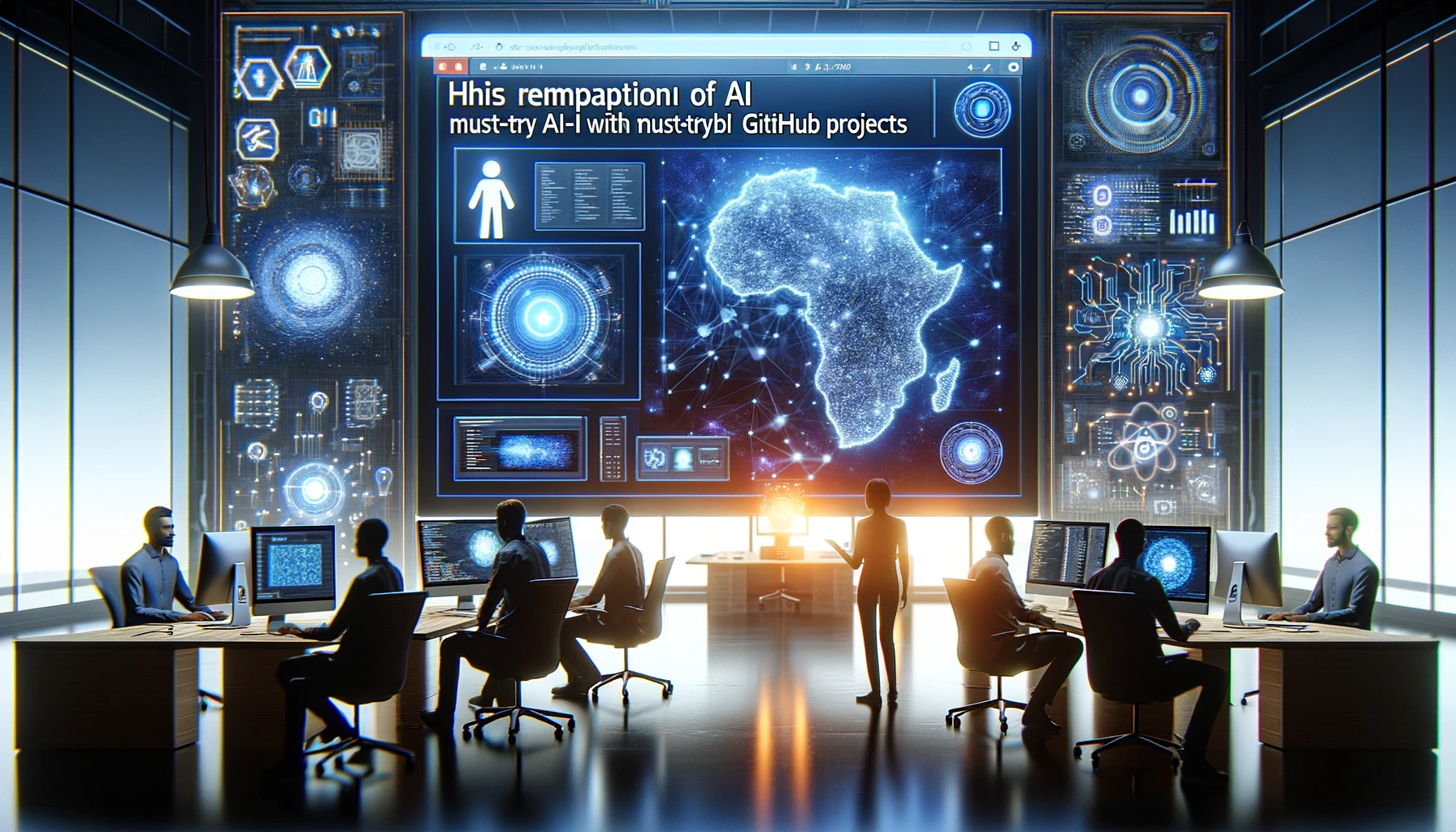The transformative potential of artificial intelligence (AI) is immense, and GitHub serves as the playground where innovation unfolds. Open-source AI projects on GitHub offer an unprecedented opportunity to explore cutting-edge technologies, learn from global experts, and contribute to the advancement of AI. Let’s embark on a journey to discover the power of AI with these must-try GitHub projects.
Why GitHub for AI Projects?
GitHub’s collaborative environment fosters innovation in open-source AI projects. Here’s why GitHub is a hotspot for AI development:
- Diverse Expertise: Connect with developers, researchers, and enthusiasts worldwide.
- Rapid Innovation: Projects evolve quickly with the help of diverse contributors.
- Skill Development: Contribute to repositories to build and showcase your skills.
- Portfolio Building: Contributions to top projects bolster your professional profile.
Exploring Must-Try GitHub AI Projects
To make the most of GitHub’s thriving AI community, here are eight must-try projects that will expand your knowledge and skills.
1. BERT (Bidirectional Encoder Representations from Transformers)
Repository: google-research/bert
Stars: 35k+
Forks: 10k+
Description: BERT is a transformer-based model for natural language processing (NLP) tasks like question answering and sentiment analysis. Developed by Google, BERT’s pre-trained models have transformed the NLP landscape.
Why Try It?
- Advanced NLP Models: Experiment with state-of-the-art models like BERT and RoBERTa.
- Real-World Applications: Implement practical applications in sentiment analysis and text classification.
- Pre-Trained Models: Leverage pre-trained models to fine-tune for specific tasks.
2. DALL·E
Repository: openai/DALL-E
Stars: 19k+
Forks: 3k+
Description: DALL·E, a project by OpenAI, is a transformer model that generates images from textual descriptions. This revolutionary project highlights the intersection of computer vision and NLP.
Why Try It?
- Text-to-Image Generation: Experiment with generating images from textual prompts.
- Creative Exploration: Develop imaginative applications in art, design, and marketing.
- Cutting-Edge Technology: Learn the latest in GANs, VQ-VAE, and transformers.
3. OpenCV
Repository: opencv/opencv
Stars: 71k+
Forks: 27k+
Description: OpenCV is the go-to library for computer vision projects, offering tools for object detection, image recognition, and more.
Why Try It?
- Comprehensive Vision Library: Access a rich set of tools for image processing and computer vision.
- Multi-Language Support: Work with bindings for Python, C++, Java, and more.
- Active Community: Participate in discussions, coding challenges, and community projects.
4. PyTorch
Repository: pytorch/pytorch
Stars: 69k+
Forks: 19k+
Description: PyTorch is a deep learning library known for its flexibility and ease of use. It’s favored by researchers and developers alike for dynamic computation graphs and GPU acceleration.
Why Try It?
- Research-Friendly: Experiment with dynamic computation graphs for advanced deep learning research.
- Comprehensive Tooling: Access features like TorchScript, ONNX export, and quantization.
- Thriving Ecosystem: Collaborate with a global community of deep learning enthusiasts.
5. GPT-3
Repository: openai/gpt-3
Stars: 12k+
Forks: 2.5k+
Description: GPT-3, by OpenAI, is a groundbreaking model known for generating human-like text. Although the official model isn’t fully open-source, the repository provides resources to utilize similar models.
Why Try It?
- Advanced Language Models: Explore large-scale transformers for language tasks.
- API Integrations: Learn to use the OpenAI API for various NLP applications.
- Innovative Applications: Develop chatbots, summarization tools, and more.
6. YOLOv5
Repository: ultralytics/yolov5
Stars: 25k+
Forks: 9.5k+
Description: YOLOv5 is the fifth version of the You Only Look Once (YOLO) real-time object detection system. This version emphasizes speed and accuracy improvements.
Why Try It?
- Real-Time Object Detection: Experiment with models that can detect objects in real time.
- Optimized Performance: Enhance speed and accuracy for production environments.
- Active Community: Engage with a global network of computer vision enthusiasts.
7. AllenNLP
Repository: allenai/allennlp
Stars: 12k+
Forks: 2.5k+
Description: AllenNLP, developed by the Allen Institute for AI, is a Python library focused on NLP research. It provides tools for model training, evaluation, and interpretation.
Why Try It?
- Research-Centric Tools: Experiment with tools supporting cutting-edge NLP research.
- Interpretability and Evaluation: Gain experience with model interpretability.
- Engaged Community: Connect with researchers and developers in NLP.

8. MLflow
Repository: mlflow/mlflow
Stars: 17k+
Forks: 4k+
Description: MLflow is an open-source platform by Databricks to manage the machine learning lifecycle. It covers experimentation, reproducibility, and deployment.
Why Try It?
- Lifecycle Management: Manage machine learning models through the entire lifecycle.
- Cross-Platform Deployment: Deploy models to Docker, Kubernetes, and more.
- Comprehensive Tracking: Track experiments and manage model versions efficiently.
How to Make the Most of GitHub AI Projects
To maximize learning and contributions to GitHub open-source AI projects, consider these tips:
- Read Documentation: Familiarize yourself with the project’s goals, structure, and contributing guidelines.
- Start Small: Begin with minor contributions like fixing typos or improving documentation.
- Join Discussions: Engage in discussions on GitHub issues or dedicated forums.
- Review Code: Reviewing existing code helps you understand the project’s standards and patterns.
- Pair Programming: Collaborate with other contributors through pair programming or study groups.
- Participate in Issues: Help tackle open issues or propose new features.
The Collaborative Power of AI on GitHub
Contributing to open-source projects on GitHub is more than just writing code. It’s about collaborating with diverse developers and researchers, tackling real-world challenges, and advancing the field of AI collectively. By exploring these must-try GitHub AI projects, you’ll not only discover the power of AI but also make a meaningful impact on the technology’s future.
SEO Details
SEO Title:Focus Keyphrase:Tags:Meta Description:



